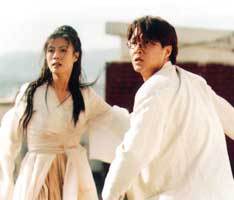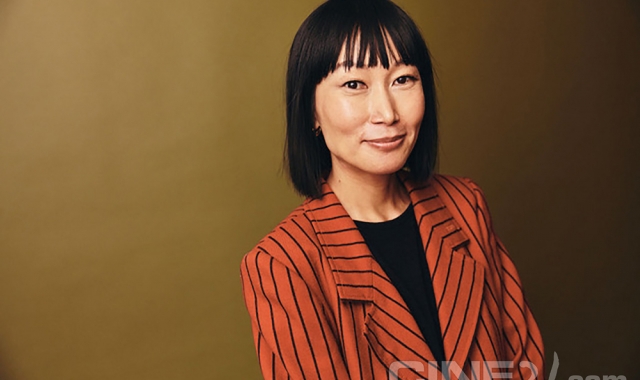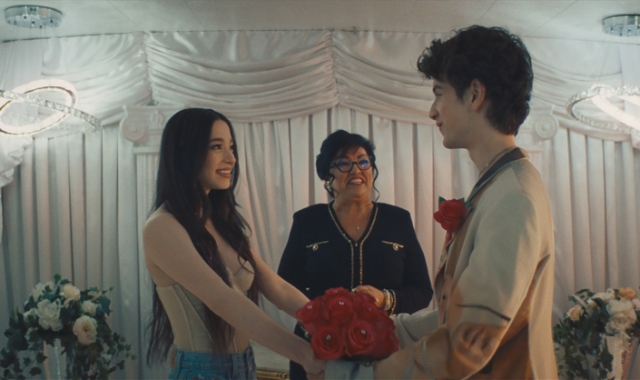
요새 한국영화가 다른 아시아 나라에서 인기있다는 얘기를 자주 듣는다. 유럽이나 미국시장이 진출하기 어려운 반면, 아시아에는 한국식 이야기 방식에 더 쉽게 공명하게 되는 일종의 아시아 문화에 대한 공감대가 존재한다는 것이다. 일부 맞는 얘기일 수도 있지만 아시아의 여러 시장 사이에는 공통점보다 차이점이 더 많고, 흥행의 성패를 결정하는 것은 지역적 요인이다. 한국영화가 오늘날 아시아에서 성공하는 이유는 다름 아닌 그 다양성에 있다. 여러 종류의 영화가 여러 부류의 관객에게 호감을 줄 수 있기 때문이다.
그 일례로 홍콩을 들 수 있다. 홍콩은 1990년대 후반 <은행나무 침대>(사진)와 를 시작으로 한국영화를 본격적으로 수입하기 시작한 최초의 아시아 국가 중 하나였다. 지금은 줄어들었지만, 2002년에 이르러서는 매년 20편에 가까운 한국영화가 홍콩에서 개봉됐다. TV드라마와 대중음악 덕분에 홍콩 사람들에게 친숙한 한국 연예인들이 생겼다. 그래서 홍콩 배급사는 스타를 내세운 영화홍보가 가능하다. 유럽 같은 곳에서는 할 수 없는 일이다. 그렇지만 흥행여부는 여전히 특유의 지역적 요인에 달려 있다. “홍콩 관객은 한국 로맨스영화를 선호한다.” <주간명보>(MingPao Weekly)에 한국 연예계 소식을 전하는 칼럼을 쓰고, 한국영화(www.krmdb.com)와 홍콩영화(www.hkmdb.com) 웹사이트를 운영하고 있는 라이언 로의 말이다. “현재 홍콩영화는 순수한 로맨스를 그리는 게 부족하다.” 지난해 홍콩에서 가장 큰 성공을 거둔 한국영화 <연애소설>과 <클래식>은 <가문의 영광>이나 <동갑내기 과외하기>보다 훨씬 많은 수입을 올렸다. 이런 요소와 전지현의 인기에 힘입어, 홍콩의 손꼽히는 영화사 에드코 필름은 곽재용 감독의 신작 <내 여자친구를 소개합니다>에 전격적으로 투자하기에 이르렀다.
<엽기적인 그녀>는 역대 홍콩에서 가장 잘 팔린 한국영화다. <조폭마누라> <쉬리> <클래식>이 그뒤를 잇는다. 반면 <친구>와 (일본에서는 대성공을 거둔) <공동경비구역 JSA>는 성적이 부진했다. 이들 영화의 수입을 합한 금액은 한국 저예산 공포영화 <찍히면 죽는다>(2000)에도 못 미쳤다.
홍콩 관객이 보기에 한국영화의 힘이 무엇이라고 생각하냐고 묻자 라이언은 다시 지역적 요인을 든다. “한국은 촬영기술이 뛰어나고 프로덕션 효과기술 면도 중시한다. 현재 홍콩에는 이런 점이 부족하다.” 그러나 이면에는 홍콩영화는 끊임없이 변하고 있고, 홍콩 내에서 제작된 탄탄한 로맨스영화들이 등장한다면 한국 로맨스영화는 수요가 줄지도 모른다. 어쩌면 홍콩 관객이 다른 장르의 한국영화를 좋아하게 될 수도 있다.
그렇기 때문에 영화인들이 ‘아시아 관객’이나 ‘유럽 관객’을 겨냥한 작업을 한다는 것은 의미가 없을 것이다. 나라별 차이가 거대한데다 지역적 요인이 영화의 성공을 좌우하는 경우가 많다. 이보다 훨씬 더 중요한 것은 투자자들이 한국영화가 장기적으로 세계시장에서 성공하기 위해서는 다양성을 유지해야 한다는 점을 인식하는 것이다.
These days we often hear that Korean cinema has become popular in other Asian countries. Although the European and North American markets have been harder to crack, in Asia we imagine a sense of shared Asian culture that allows viewers to more easily identify with Korean modes of storytelling. There may be some truth to this, but it is probably more accurate to say that more differences than similarities exist between Asian markets, and local factors determine what does well and what doesn't. Korean cinema is doing well in Asia these days because it is diverse, so different kinds of movies can appeal to different kinds of viewers.
Hong Kong is one example. The territory was one of the first in Asia to import Korean films on a large scale, beginning with The Gingko Bed and Christmas in August in the late 1990s. By 2002, close to 20 Korean films a year were released in the territory, although this has now tapered off. Thanks to TV dramas and popular music, people in Hong Kong have become familiar with a certain number of Korean entertainers. This allows local distributors to market films around a certain star, which could never be done in Europe, for example.
However local factors still determine what does well. "Hong Kong viewers prefer Korean romance films," says Ryan Law, who writes a column about Korean entertainment for MingPao Weekly and who maintains websites on Korean cinema (www.krmdb.com) and Hong Kong cinema (www.hkmdb.com). "This is something that Hong Kong movies lack these days, films that depict a pure romance." Last year's strongest Korean hits, Lovers Concerto and The Classic earned vastly more than Marrying the Mafia or My Tutor Friend. Such factors, plus the popularity of actress Jeon Ji-hyun, led the highly respected Hong-Kong based company Edko Films to completely finance Kwak Jae-yong's upcoming film Windswept.
My Sassy Girl remains the best-selling Korean film ever in Hong Kong, followed by My Wife is a Gangster, Shiri, and The Classic. In contrast, Friend and JSA (which was a huge hit in Japan) did quite poorly -- their combined box-office was less than that of the low-budget Korean horror film Record (2000).
When asked what Hong Kong viewers think about the strengths of Korean cinema, Ryan again refers to local considerations. "Korean cinematography is strong, and production values are taken seriously. This is now lacking in Hong Kong." However, there is a flip side to this as well. Hong Kong cinema is constantly changing, and if in the future a group of strong, locally-produced romance films emerge, then Korean romances may no longer be in demand. Perhaps Hong Kong audiences will start preferring other genres from Korea.
So it probably doesn't make sense for filmmakers to try to appeal to an "Asian" or "European" audience. The differences between countries are huge, and local factors often determine a film's success. Far more important is for investors to recognize that Korean cinema needs to stay diverse in order to succeed long term in the international market.






